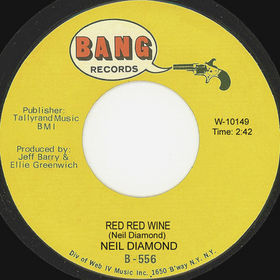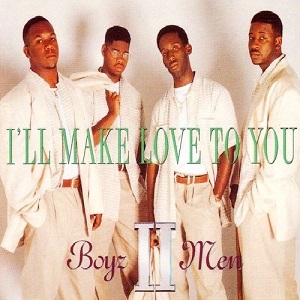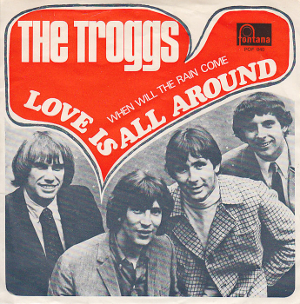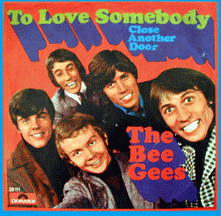
Hank Ballard was an American R&B singer and songwriter, the lead vocalist of The Midnighters and one of the first rock and roll artists to emerge in the early 1950s. He played an integral part in the development of the genre, releasing the hit singles "Work With Me, Annie" and answer songs "Annie Had a Baby" and "Annie's Aunt Fannie" with his Midnighters. He later wrote and originally recorded "The Twist" which was notably covered a year later by Chubby Checker, this second version spreading the popularity of the dance. He was inducted into the Rock and Roll Hall of Fame in 1990.
"Without You" is a song written by Pete Ham and Tom Evans of British rock group Badfinger, and first released on their 1970 album No Dice. The power ballad has been recorded by over 180 artists, and versions released as singles by Harry Nilsson (1971), T. G. Sheppard (1983) and Mariah Carey (1994) became international best-sellers. Paul McCartney once described the ballad as "the killer song of all time".

"It Must Have Been Love" originally "It Must Have Been Love " is a song written by Per Gessle and performed by the Swedish pop duo Roxette. The power ballad became the duo's third number one hit in the United States, and is one of their best selling releases, being certified gold or platinum in a number of countries.

"Come See About Me" is a 1964 song recorded by the Supremes for the Motown label.

"In the Midnight Hour" is a song originally performed by Wilson Pickett in 1965 and released on his 1965 album of the same name, also appearing on the 1966 album The Exciting Wilson Pickett. The song was composed by Pickett and Steve Cropper at the historic Lorraine Motel in Memphis, later the site of the assassination of Martin Luther King Jr.. Pickett's first hit on Atlantic Records, it reached number one on the R&B charts and peaked at number 21 on the pop charts.

"Red Red Wine" is a song originally written, performed, and recorded by American singer Neil Diamond in 1967. It is included on Diamond's second studio album, Just for You. The lyrics are sung from the perspective of a person who finds that drinking red wine is the only way to forget his woes.

"I'll Make Love to You" is a 1994 number-one hit single by R&B group Boyz II Men for the Motown label. The song, which was written by Babyface, was the lead single from their second album II.
The Adult Contemporary chart is published weekly by Billboard magazine and lists the most popular songs on adult contemporary radio stations in the United States. The chart is compiled based on airplay data submitted to Billboard by stations that are members of the Adult Contemporary radio panel. The chart debuted in Billboard magazine on July 17, 1961. Over the years, the chart has gone under a series of name changes, being called Easy Listening(1961–1962; 1965–1979), Middle-Road Singles(1962–1964), Pop-Standard Singles(1964–1965), Hot Adult Contemporary Tracks(1979–1982) and Adult Contemporary(1983–present).

"Love Bites" is a power ballad recorded by the English rock band Def Leppard in 1987 on the album Hysteria. It is Def Leppard's only number-one single on the US Billboard Hot 100 to date.

"Are You Lonesome Tonight?" is a song written by Roy Turk and Lou Handman in 1926. It was recorded several times in 1927—first by Charles Hart, with successful versions by Vaughn De Leath, Henry Burr, and the duet of Jerry Macy and John Ryan. In 1950 the Blue Barron Orchestra version reached the top twenty on the Billboard's Pop Singles chart.

"Love Is All Around" is a song recorded by English rock band the Troggs, featuring a string quartet and a 'tick tock' sound on percussion, in D-major. It was written by lead singer Reg Presley and was purportedly inspired by a television transmission of the Joy Strings Salvation Army band's "Love That's All Around". The song was first released as a single in the UK in October 1967, peaking at number 5. On the Hot 100, the record entered at number 98 on 24 February 1968, peaked at number 7 on 18 May 1968, was on the chart a total of 16 weeks, and ranked number 40 for all of 1968.

"Daydream Believer" is a song composed by American songwriter John Stewart, shortly before he left the Kingston Trio. It was originally recorded by the Monkees, with Davy Jones singing the lead. The single reached No. 1 on the U.S. Billboard Hot 100 chart in December 1967, remaining there for four weeks, and peaked at No. 5 in the UK Singles Chart. It was the Monkees' last No. 1 hit in the U.S.

"Silly Love Songs" is a song written by Paul McCartney and Linda McCartney and performed by Wings. The song appears on the 1976 album Wings at the Speed of Sound. It was also released as a single in 1976, backed with "Cook of the House". The song, written in response to John Lennon and music critics accusing McCartney of predominantly writing "silly love songs" and "sentimental slush", also features disco overtones.

"Glory of Love" is a 1986 song performed by Peter Cetera, which he wrote and composed with his then-wife Diane Nini and David Foster. The song was recorded by Cetera shortly after he left the band Chicago to pursue a solo career. Featured in the film The Karate Kid Part II (1986), it was Cetera's first hit single after he left the band, reaching number one on the Billboard Hot 100, and it was included on his album Solitude/Solitaire (1986), which Michael Omartian produced.

"To Love Somebody" is a song written by Barry and Robin Gibb. Produced by Robert Stigwood, it was the second single released by the Bee Gees from their international debut album, Bee Gees 1st, in 1967. The single reached No. 17 in the United States and No. 41 in the United Kingdom. The song's B-side was "Close Another Door". The single was reissued in 1980 on RSO Records with "How Can You Mend a Broken Heart" as its flipside. The song ranked at number 94 on NME magazine's "100 Best Tracks of the Sixties". It was a minor hit in the UK and France. It reached the top 20 in the US. It reached the top 10 in Canada.

"This I Promise You" is a ballad by the American boy band NSYNC. It was released in November 2000 as the third and final single in the United States and the fourth and final single in Europe from their second studio album, No Strings Attached, in 2000. The song is included on all three of the band's compilation albums: Greatest Hits (2005), The Collection (2010), and The Essential *NSYNC (2014). The single reached number five on the US Billboard Hot 100.

"Love Ballad" is a song by R&B/Funk band L.T.D.. Jeffrey Osborne is the lead singer.

"Words Get in the Way" is a song written by Gloria Estefan and released as the third single from her band, Miami Sound Machine, on their second English language album, and ninth overall, Primitive Love. The song is a ballad and became the highest charting song off the album.

"Make It Real" is a song by the American sibling group, The Jets, released as a single from their album, Magic in April 1988.

"Hello It's Me" is a song written by American musician Todd Rundgren. It was the first song he wrote, and was recorded by his group Nazz as a slow ballad, released as the B-side of the band's first single, "Open My Eyes", in 1968. A mid-tempo version of "Hello It's Me", recorded for Rundgren's 1972 solo album Something/Anything?, was issued as a single in September 1973, reaching No. 5 on the Billboard Hot 100 chart.

















